For many women, a routine OB-GYN appointment comes and goes without much thought, especially when they’re healthy, active and in their 30s. That’s how Dawn, a mother of two from New Jersey, felt when she went to her yearly appointment in June 2021 at 39 years old.
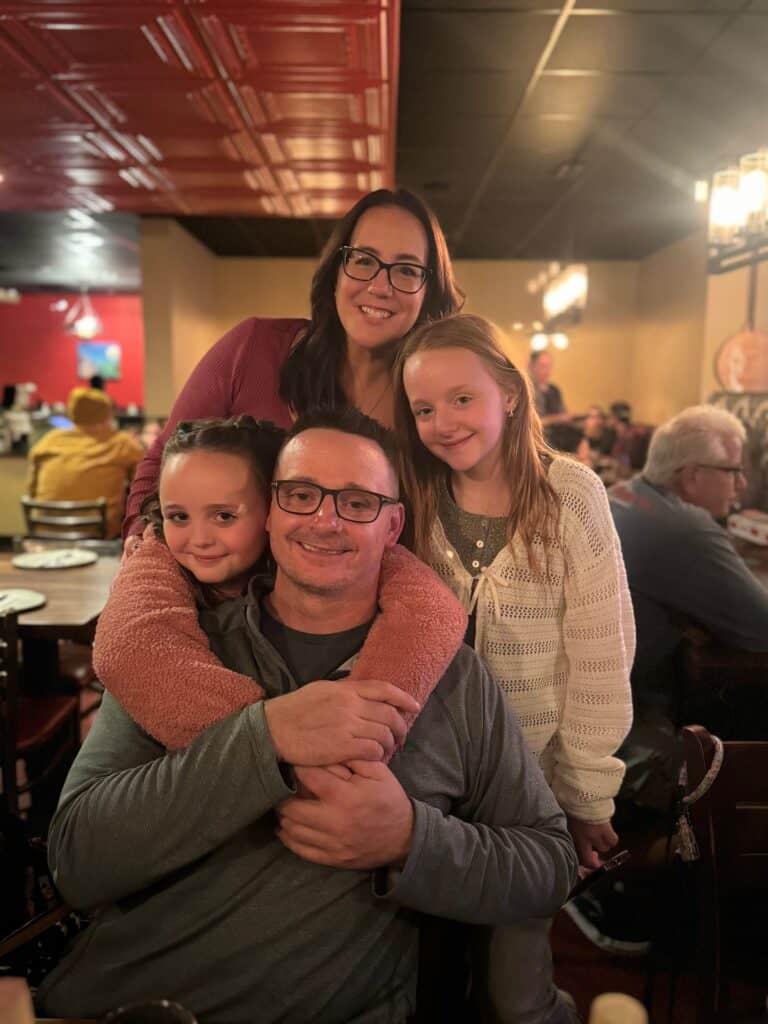
“My birthday was at the beginning of June and I specifically remember when I went in for my appointment the nurse said, ‘Happy birthday! No mammogram until next year,’” Dawn said. Before her appointment, she hadn’t noticed any warning signs or unusual changes. However, a clinical breast exam by her doctor set in motion a series of events that quickly led to a diagnosis.
Unanswered Questions
“My doctor did the breast exam and she felt something,” Dawn recalled. “She said, ‘I don’t think it’s anything to be worried about. It’s probably just a cyst.’” However, her doctor recommended a diagnostic mammogram and breast ultrasound just in case. Dawn had the tests the following week.
“When they did the ultrasound, I could see the lump on the screen. You know when you just know something is wrong? I just knew at that moment, even before the biopsy, that it was cancer.”
After the biopsy confirmed it was breast cancer, Dawn found herself navigating a world that felt foreign and overwhelming. “My OB-GYN scheduled an appointment with an oncologist at one hospital, where they confirmed I had stage 2B triple negative breast cancer,” she said.
Dawn knew she needed more information but wasn’t sure what questions to ask. “I printed out Susan G. Komen’s ‘Questions to Ask Your Doctor’ sheet and highlighted everything I wanted to cover in my appointment. At that appointment, I quickly realized they didn’t want to answer my questions; it felt like they just wanted to throw information at me. I left that appointment in tears — it was a terrible experience. They were giving me plastic surgeons to meet with before we even chose a course of action for my treatment. I just knew I had to find a place where I felt comfortable.”
Dawn realized she needed to be her own advocate to get the answers she needed.
Seeking Second Opinions
“I remember the doctors at the first hospital didn’t react very nicely when I mentioned seeking second opinions,” Dawn said. “But I had to trust my gut. After my first appointment with a different team, I knew they were the right ones for me. My husband, Matt, and I actually left the appointment laughing. They were so comforting and took the time to answer all the questions from the Komen resource. I felt like I was part of the conversation, not just being told things.”
Dawn attributes having the confidence to ask for second opinions to saving her life. With her new team, she didn’t feel like she was being rushed into treatment plans she didn’t fully understand or agree with.
A breast MRI, ordered by the breast surgeon on her new team, found that Dawn’s cancer had spread to her internal mammary node, bringing her cancer from stage 2B to 3B.
“From there, I met with one of the best oncologists in our area and it all moved really quickly,” Dawn said. “They gave me every test imaginable and luckily it hadn’t spread anywhere else. Even so, because it was an aggressive, breast cancer, they said we had to treat it aggressively and that’s what we did.”
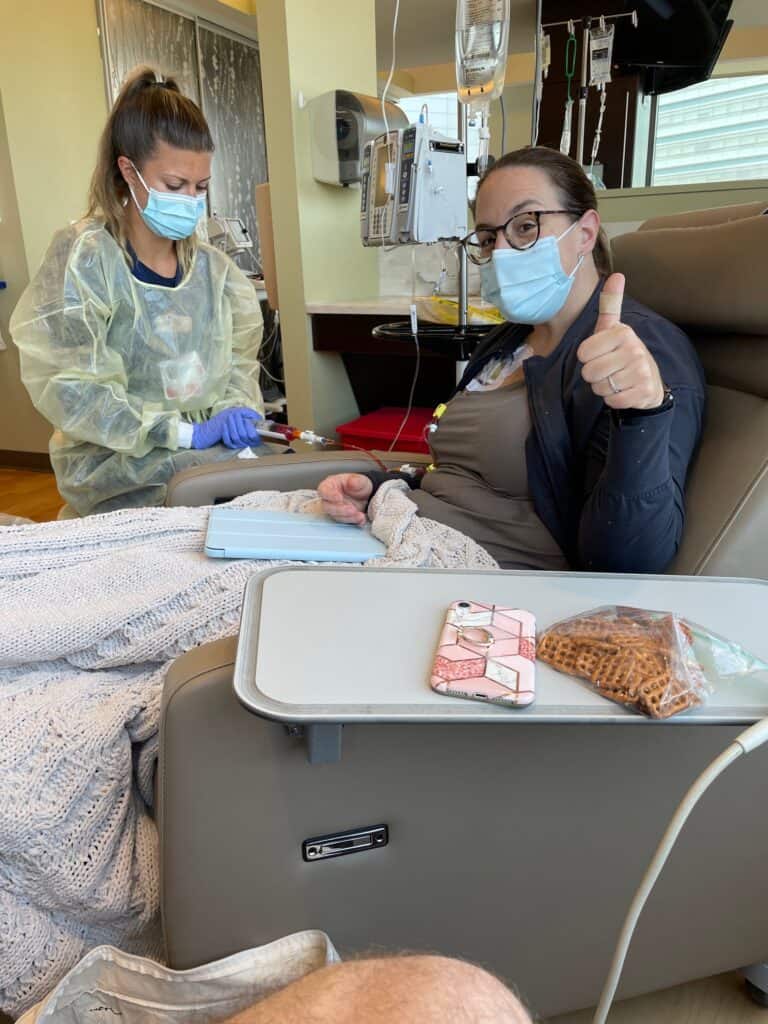
Treatment and Trials
“Not even a month after my diagnosis, I started chemo,” Dawn shared. “Then it was full speed ahead from there.” Three days after Dawn received her first chemotherapy treatment, KEYTRUDA was approved to be used to treat triple negative breast cancer.
“After my first chemo, the rest were infused with KEYTRUDA. I responded so well. After four treatments, they did an ultrasound, and my tumor went from 2.3 cm to a half cm.”
After a few more rounds of chemo and two frightening allergic reactions to Carbo Taxol, Dawn spoke with her breast surgeon about the best course of action and decided to get a lumpectomy with a breast reduction and lift at the same time.
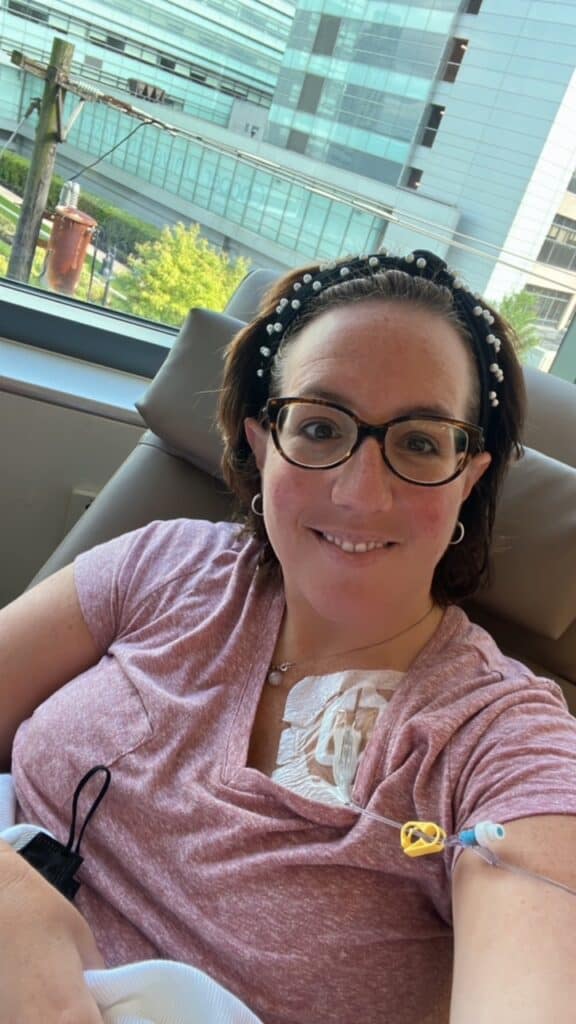
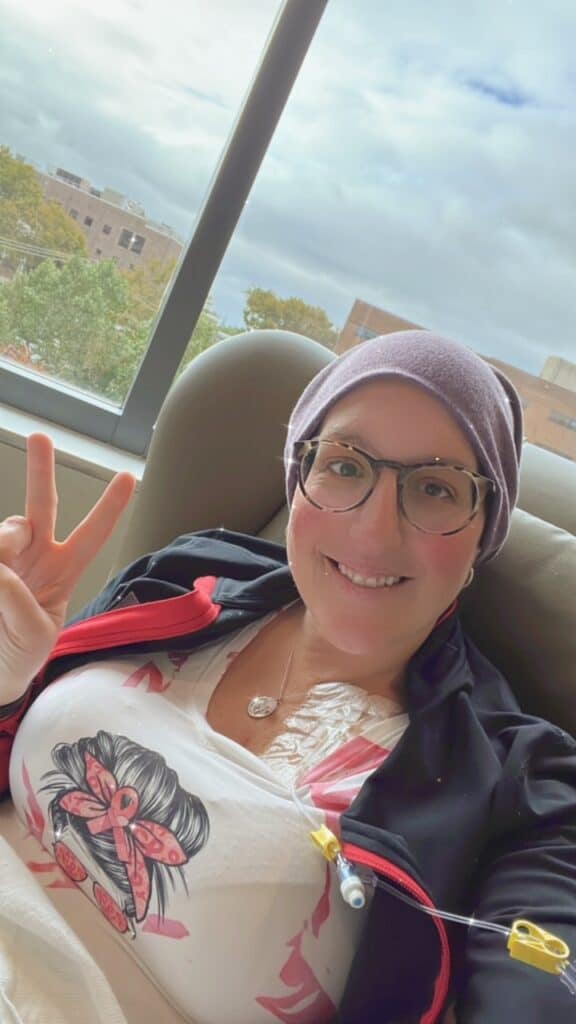
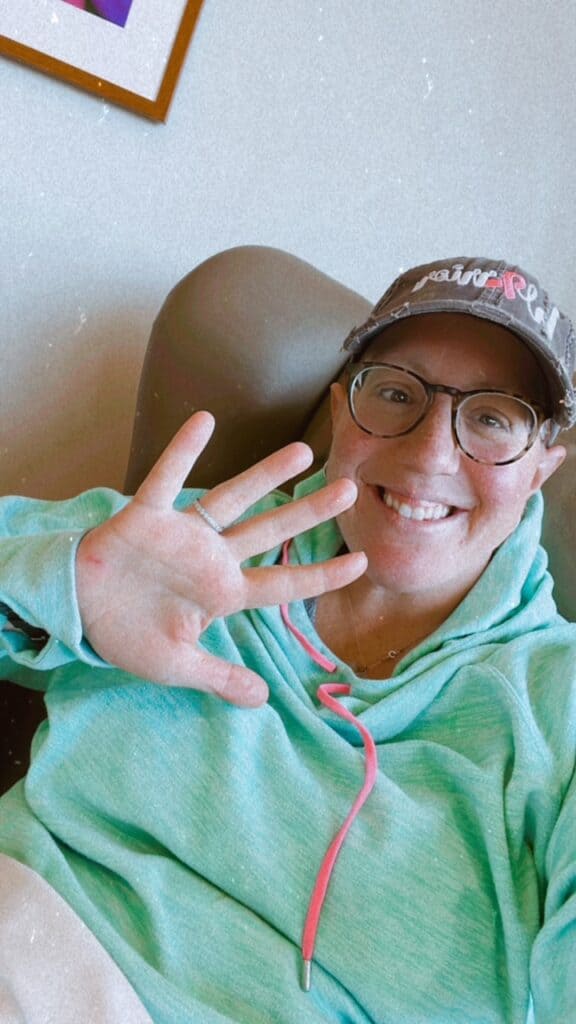
“I had my surgery in December. During my surgery, they also removed a couple more lymph nodes to test them and just to be safe, which were all good. My margins were clear, and from there, so I did multiple rounds of radiation from January to March,” Dawn said.
Empowered Through Information
“I didn’t know where to start when I was first diagnosed,” Dawn said. “I sat down at my computer and just started searching for things. I didn’t want to read too much of other people’s stories, so when I found the Komen resource laying out important questions to ask so I could learn about my own cancer in the best way, I just knew I had to use it.”
By seeking second opinions, trusting her instincts, and asking questions, Dawn took an active role in her breast cancer experience.
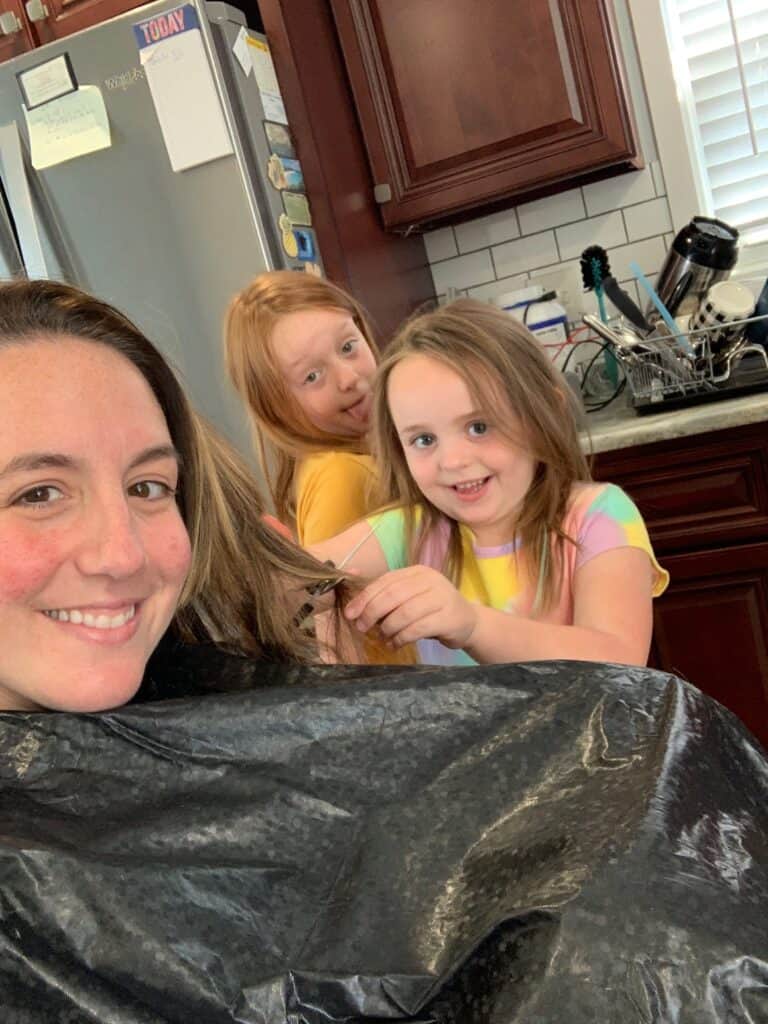
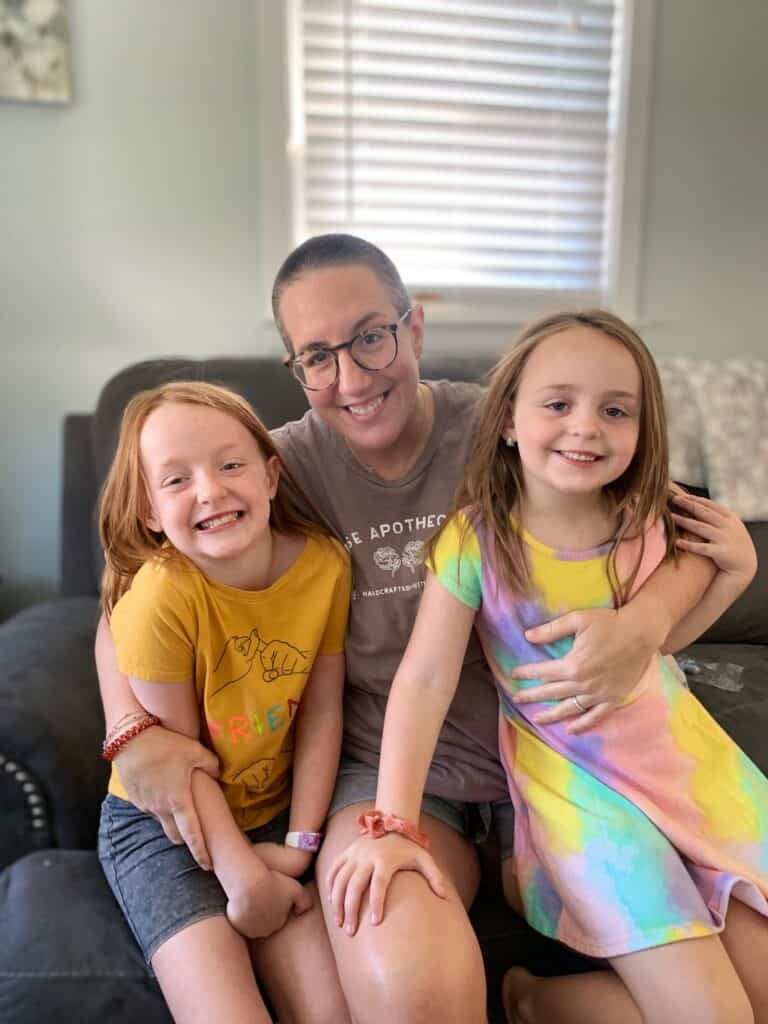
“Don’t hesitate to ask for more information, seek additional resources and trust your gut. You always need to advocate for yourself,” she said. “My surgeon became one of my favorite doctors and even gave me her personal cell number. She answered every question truthfully, but with empathy and it made all the difference in my experience.”
Statements and opinions expressed are that of the individual and do not express the views or opinions of Susan G. Komen. This information is being provided for educational purposes only and is not to be construed as medical advice. Persons with breast cancer should consult their healthcare provider with specific questions or concerns about their treatment.



